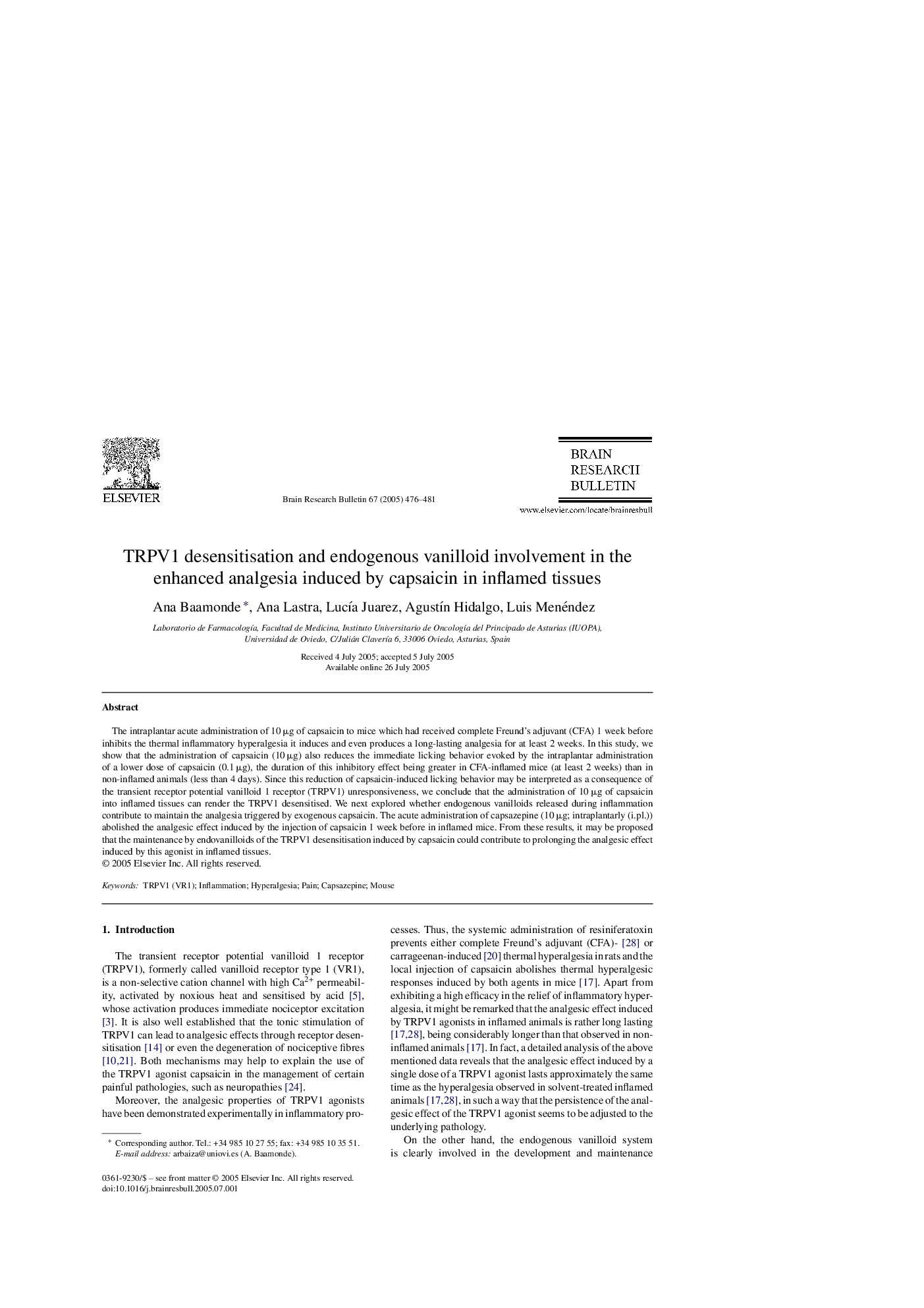| Article ID | Journal | Published Year | Pages | File Type |
|---|---|---|---|---|
| 9409319 | Brain Research Bulletin | 2005 | 6 Pages |
Abstract
The intraplantar acute administration of 10 μg of capsaicin to mice which had received complete Freund's adjuvant (CFA) 1 week before inhibits the thermal inflammatory hyperalgesia it induces and even produces a long-lasting analgesia for at least 2 weeks. In this study, we show that the administration of capsaicin (10 μg) also reduces the immediate licking behavior evoked by the intraplantar administration of a lower dose of capsaicin (0.1 μg), the duration of this inhibitory effect being greater in CFA-inflamed mice (at least 2 weeks) than in non-inflamed animals (less than 4 days). Since this reduction of capsaicin-induced licking behavior may be interpreted as a consequence of the transient receptor potential vanilloid 1 receptor (TRPV1) unresponsiveness, we conclude that the administration of 10 μg of capsaicin into inflamed tissues can render the TRPV1 desensitised. We next explored whether endogenous vanilloids released during inflammation contribute to maintain the analgesia triggered by exogenous capsaicin. The acute administration of capsazepine (10 μg; intraplantarly (i.pl.)) abolished the analgesic effect induced by the injection of capsaicin 1 week before in inflamed mice. From these results, it may be proposed that the maintenance by endovanilloids of the TRPV1 desensitisation induced by capsaicin could contribute to prolonging the analgesic effect induced by this agonist in inflamed tissues.
Related Topics
Life Sciences
Neuroscience
Cellular and Molecular Neuroscience
Authors
Ana Baamonde, Ana Lastra, LucÃa Juarez, AgustÃn Hidalgo, Luis Menéndez,
